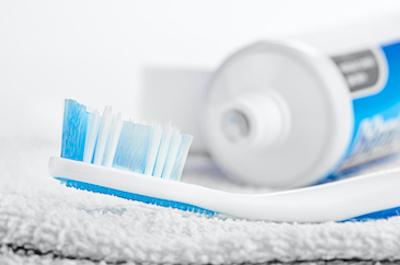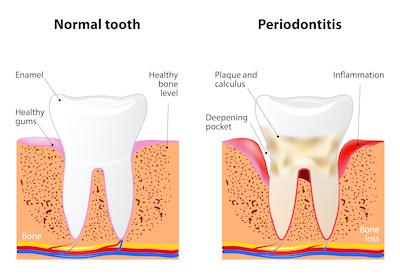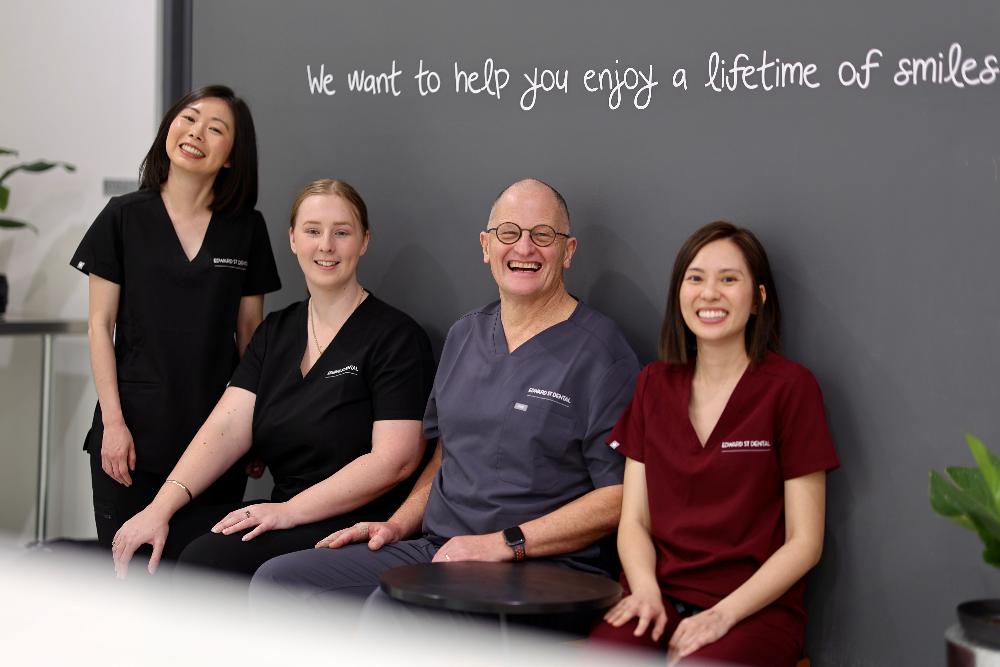
Gum disease, often called periodontal disease, is a serious oral health condition that your Brisbane dentist must treat. Without treatment, the consequences can be severe.
While advanced gum disease is not curable, it remains treatable. Additionally, with diligence and healthy habits, it is preventable.
If you’ve been diagnosed with gum disease or suspect you might have it. We understand your worry. However, the team at Edward St Dental will support you throughout treatment and provide compassionate care every step of the way.
Continue reading to learn what gum disease is and how you can prevent and treat this condition with your dentist.
What Is Gum Disease?
Gingivitis
Gum disease is a staged condition that starts as gingivitis. In this first stage, your dentist can typically eradicate the disease and restore your oral health. Gingivitis means infections and inflammation in the tissues and periodontal ligaments that support your teeth.
Periodontitis
The periodontitis stage of gum disease is not curable. However, your dentist can treat the condition, bringing you to better oral health and lowering your risks for complications. Periodontitis means the infections and inflammation have reached the jawbone.
 Signs of Gum Disease
Signs of Gum Disease
Gingivitis and advanced gum disease symptoms can be subtle for some patients, which is one of the reasons regular check-ups are so important. By seeing your dentist for checks and cleans, we can monitor your periodontal health and help you prevent gum disease or catch it in the first stage when it is reversible.
When symptoms present, they can include some or all of the following:
- Bleeding gums, especially when brushing and flossing
- Gum irritation, recession and pocketing
- Loose or mobile teeth due to recession, pocketing and bone loss
- Bad breath or a bad taste in the mouth that recurs even after brushing and flossing
- Tooth discolouration and sensitivity
Gum Disease Prevention in Brisbane
To help prevent gum disease, looking at the causes and risk factors is essential. By following healthy habits and avoiding the risk factors, you can significantly lower your risks for gum disease and other oral health conditions like tooth decay.
See Your Dentist Regularly
Your Brisbane dentist customises your preventive schedule. For most patients, that means seeing the dentist once or twice yearly for checks and cleans.
Your check-up allows your dentist to spot gum disease in the early gingivitis stage. Professional teeth cleaning is a way to rid your teeth and gums of the ingredients that put you at risk for gum disease.
It’s important to follow your dentist’s recommendations for care and not skip these checks and cleans.
Share Your Health and Family History with Your Dentist
Some patients may have a family history of gum disease, which is essential information to share with your dentist. Additionally, some health conditions can increase your risk of developing gingivitis—conditions like diabetes. Be sure to share your complete health history with the dentist.
If you notice oral health changes or are diagnosed with a medical condition, it’s crucial to let your dentist know.
Brush and Floss Effectively
Brushing your teeth after every meal is best, but if you cannot follow this recommendation, do so at least twice daily. It would be best if you also flossed at least once.
When you brush your teeth, be sure to spend time on each tooth, hitting all surfaces. On average, you should spend at least two minutes cleaning your teeth with a soft-bristled toothbrush. Also, use fresh lengths of dental floss when you pass between teeth.
Give Up Tobacco
Tobacco is bad for your oral health and overall wellness. As a risk factor for gum disease, it can restrict blood flow to the oral tissues, lead to inflammation and dry your mouth. Smoking makes it hard for gum tissue to heal and adhere to your teeth.
Be Aware of Hormonal Changes
Hormonal changes, as seen in pregnancy, can increase your gum disease risks. If you’re pregnant, we urge you to continue visiting the dentist in Brisbane for checks and cleans.
 Risks Associated with Untreated Gum Disease
Risks Associated with Untreated Gum Disease
Studies and evidence have linked gum disease with the following:
- Tooth loss
- Pregnancy complications
- Heart issues
- Lung issues
- Rheumatoid arthritis
- Alzheimer’s disease
Gum Disease Treatment in Brisbane
At Edward St Dental, we emphasise prevention. However, if you’re diagnosed with gum disease, your dentist will create a treatment plan to address your level of inflammation.
Treatments may include surgery, antibiotic therapy, and deep cleans called planing and scaling.
Planing and scaling involve cleaning below the gumline, clearing infections, recontouring tooth roots and prompting gums to adhere better to the teeth.
Your dentist may also recommend specialised oral care routines for home.
If you have gum disease, we will discuss the specifics with you and talk to you about the correct treatment plan to address your needs.
For Gum Disease Treatment, We Welcome Your Call
Your ongoing oral health is our priority. If you would like to book a consultation with the dentist or if it’s time for your next check and clean, we encourage you to contact a helpful team member today to get started.
We work with ZipMoney and AfterPay.

